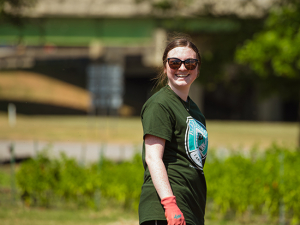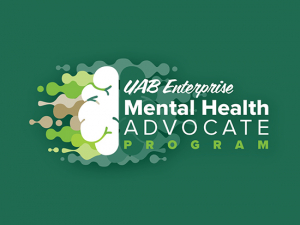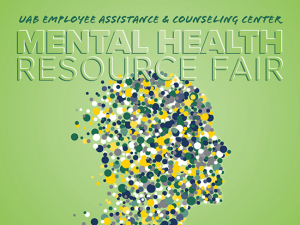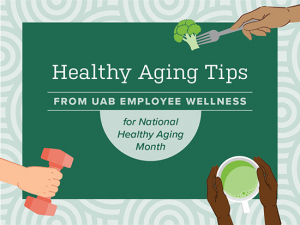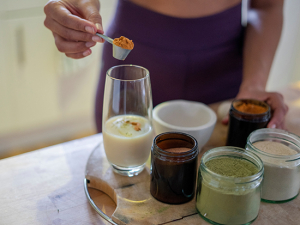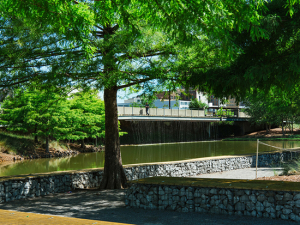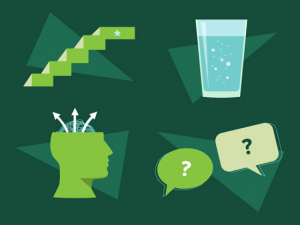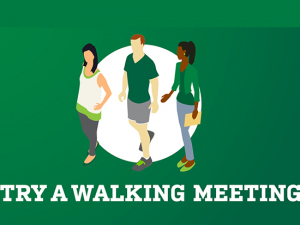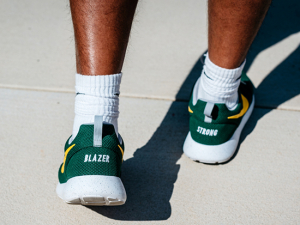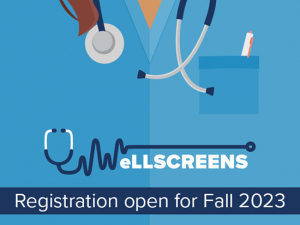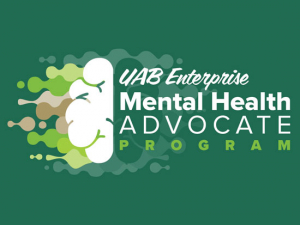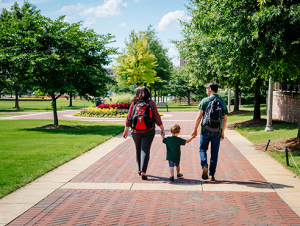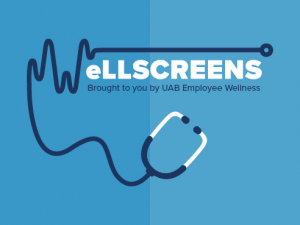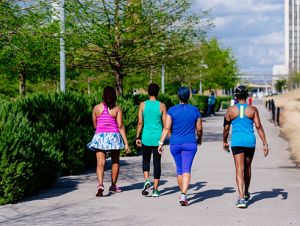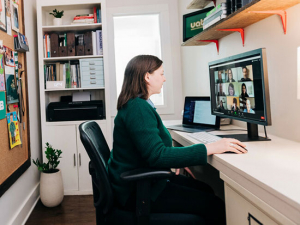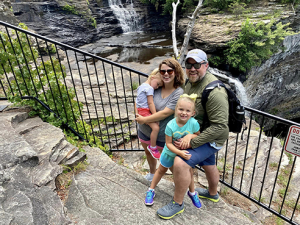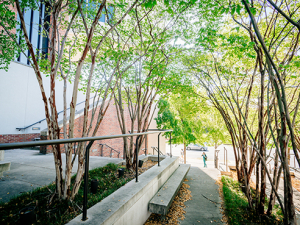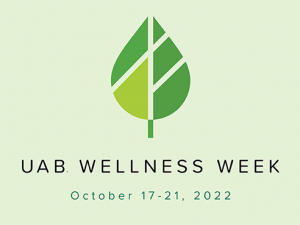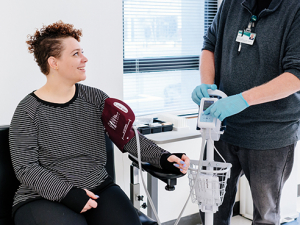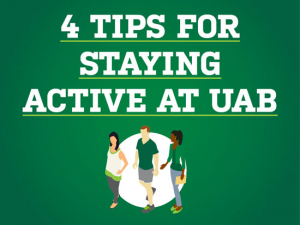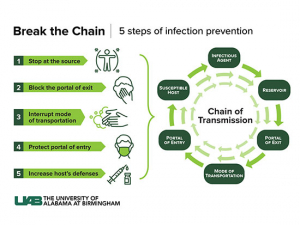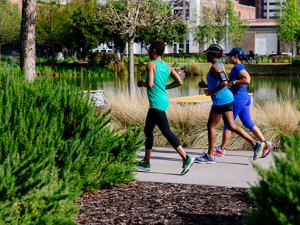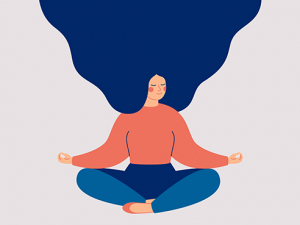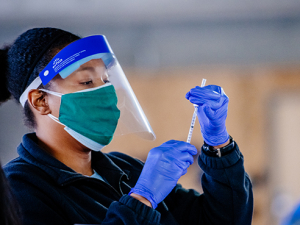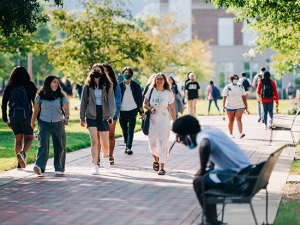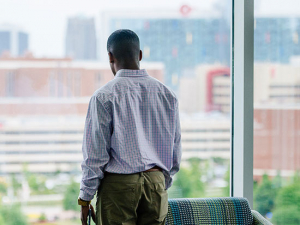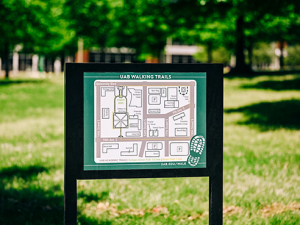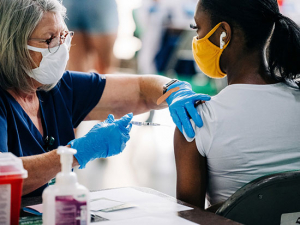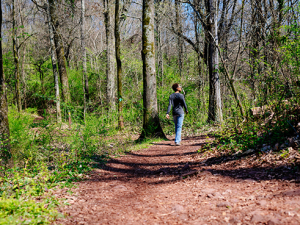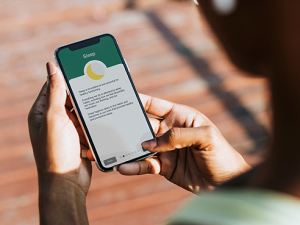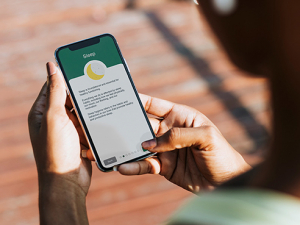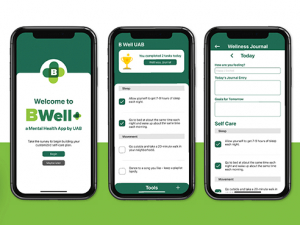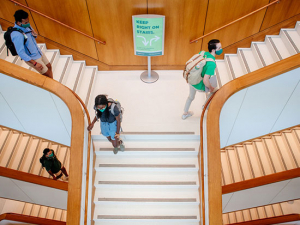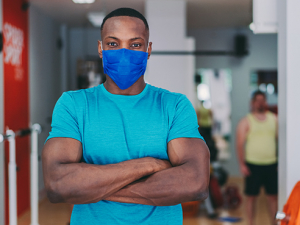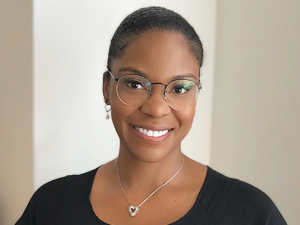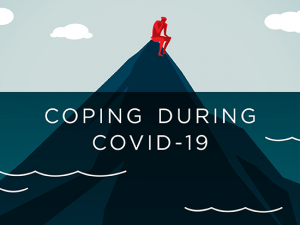Lauren Whitt’s dissertation examined the resiliency of college athletes despite setbacks and disappointments, a topic with which she was more than familiar.
 The former Vanderbilt University soccer standout tore the anterior cruciate ligament in her left knee the first game her sophomore season. She tore it again 10 months later playing semi-pro ball in North Carolina. She had to redshirt her sophomore and junior years at Vanderbilt, but returned to play two years with the Commodores before transferring to Clemson to play a sixth year of eligibility.
The former Vanderbilt University soccer standout tore the anterior cruciate ligament in her left knee the first game her sophomore season. She tore it again 10 months later playing semi-pro ball in North Carolina. She had to redshirt her sophomore and junior years at Vanderbilt, but returned to play two years with the Commodores before transferring to Clemson to play a sixth year of eligibility.
The time not spent playing gave Whitt an opportunity to look at soccer from a much broader perspective and ultimately set her career path. She examined all of the moving pieces that make a team successful.
“I really got to study the coaching, organization, strategy behind decision-making and the little things required to make a group successful,” Whitt says. “And it is the little things that make the biggest difference in success for a team of people.”
That’s the message Whitt has preached in previous stops at Alabama Power Company and the University of Alabama and the one she brings to UAB as its wellness coordinator.
Whitt joined UAB in January to direct the Employee Wellness program, which has already undertaken several initiatives to raise its profile:
- The Farm Stand initiative, which gives employees and students opportunities to buy healthy fruits and vegetables every day.
- A partnership with UAB EatRight that brings weight-management programs into UAB Medicine
- The Beat the Pack tobacco-cessation program, a partnership with the Resource Center/Employee Assistance Program.
Other programs and events include the Blazer Fun Run set for Saturday, Nov. 12.
UAB has a wealth of opportunities and resources, Whitt says, and she wants to showcase them for employees.
“We’re building bridges to a healthy workforce,” Whitt says. “All of our programs are open to employees and their family members. We understand health is not a decision you can make on your own. We’ve had some family members that have jumped into the Beat the Pack program and a few get involved with EatRight.
“We want to build a bridge between the experts, resources and programs we have at UAB to our employees who want to be involved, need the help and want to take those steps,” she says.
The Wellness Program was born of the Wellness Committee, which was started by a group of employees interested in promoting healthy habits. The new Wellness Program is a benefit provided to all employees and their families. UAB’s decision to dedicate one person to develop and oversee the program is a significant step, says Will Ferniany, Ph.D., chief executive officer of the UAB Health System.
“Lauren’s position as head of our wellness programs is an important milestone for UAB,” Ferniany says. “Nothing is more important to invest in than the faculty and staff who work here. UAB leadership is committed to having a healthy workplace and healthy faculty and staff. We are very fortunate to have found someone as qualified and as passionate about health as Lauren.”
Program goals
Whitt has established several goals for the program. She plans to spend the first two years reaching into all corners of the campus to let employees know the program is here and available to connect them to UAB resources.
Whitt is doing this using the Lifestyle Solutions program and by highlighting chronic conditions many employees face.
The Lifestyle Solutions program focuses on nutrition, exercise, work-life balance and tobacco-cessation.
“These are the choices we make every day,” Whitt says. “We have a choice around what we eat and drink, whether we walk, whether we smoke and how we generally manage our lives. Just because you eat fried foods for breakfast doesn’t mean the whole day is a wash. At lunch, go to Subway, and you can walk. You can achieve two healthy behaviors at once.”
Among the programs involved in LifeStyle Solutions is EatRight, which now provides access to its programs for 12 weeks at a cost of $125. If you choose to join the Hospital Health Club during that 12-week period, too, the total cost for access to both is $175.
Another advantage to employees is the 12 free counseling sessions provided each year through the Employee Assistance Program. These free, personal counseling sessions are confidential and focus on individual, couples or family issues.
The free Beat the Pack program has been well attended by employees and family members. It will return in November and continue every other month with one lunch-hour class a week for four weeks.
Another focus is helping employees manage their chronic conditions — diabetes, hypertension and other health maladies that aren’t going to go away. The goal, Whitt says, is to help employees make good decisions and find the right treatments and specialists here on campus.
“A lot of our employees don’t know, for example, that we have a Comprehensive Diabetes Center they can access,” she says. “They think it’s just for outside patients. We have a cardiac pulmonary rehab clinic with maintenance programs. Our employees don’t know about these options in many cases.
“We want our program to be tied to our medical plan so we can affect employee health and well-being in a real and meaningful way,” Whitt says.
Take initiative
Of course, Whitt understands everyone faces their own challenges when it comes to wellness.
Whitt teaches Personal Health to undergraduates in the Department of Human Studies. They often discuss diet, nutrition, stress management, value and the importance of healthy relationships in family dynamics and social circles. And they discuss the challenges of overcoming obstacles — being resilient. What skills make individuals able to bounce back from injury, disappointment or other personal factors? The answer is an internal drive, and Whitt says everyone has that in them.
“We have to learn to take initiative and be responsible for our health and the decisions we make,” she says. “We all fear that failure component — I’m afraid if I try and fail, I won’t be able to handle that. That keeps so many of us from taking those initial steps. As a college and international athlete, I believe so much in that hope. You can achieve whatever goals you set. Just remember that it’s little things we do that make a difference.”
